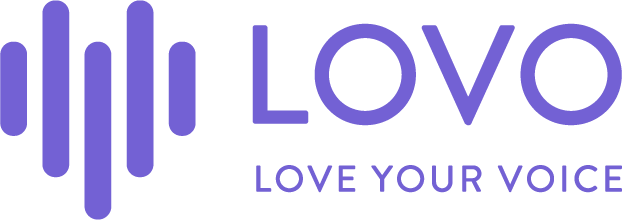Yes, most text-to-speech software can be accessible from numerous devices and platforms, making it easy for users to transition between them. Whether you use a desktop computer, laptop, tablet, or smartphone, you can install the software and access it from any device. Furthermore, much text to speech software is cross-platform compatible, which means you can use it on a variety of operating systems, including Windows, Mac, and even mobile operating systems like Android and iOS.
List of 20 Best Text to Speech Software
Talkia is a software designed to transform written content into professional and realistic voiceovers. Whether you need voiceovers for videos, marketing materials, or audiobooks, Talkia delivers exceptional results. With a user-friendly interface and...Read More Talkia
FreeTTS is a online solution for converting text into high-quality speech or MP3 files in multiple languages and voices. This innovative software is ideal for a variety of applications such as e-learning, digital books, and assistive technology. Expe...Read More FreeTTS
Reggelia is a language learning software designed to revolutionize the way you learn a new language. With its cutting-edge AI technology and innovative features such as pronunciation evaluation, translation assistance, and grammar assessment, Reggeli...Read More Reggelia
Optimizer AI is the must-have solution for Artists, Videographers, Game Developers, and Creators. Enhance your creations with our cutting-edge AI sound effect creator, driven by advanced technology. Unleash the full potential of your content with int...Read More Optimizer AI
Play.ht - the advanced AI voice generation platform that creates natural-sounding speech with ease. It caters to numerous applications, offering a wide range of customization tools and language options (over 142 to be exact). With a strong commitment...Read More Play.ht
CuePrompter is a leading online teleprompter service that transforms your browser into a professional autocue tool. Its completely free and reliable, making it perfect for both commercial and non-commercial use. With a user-friendly interface and cus...Read More CuePrompter
Experience the power of Acapela Cloud is a text-to-speech solution for bringing written content to life. Seamlessly integrated into your projects, it offers a range of customizable voices to effectively engage your audience. Elevate your communicatio...Read More Acapela Cloud
Capti Voice - an innovative solution designed to enhance students reading skills using scientifically proven techniques. This powerful tool offers personalized support, making reading more engaging and effortless, ultimately leading to improved acade...Read More Capti Voice
Deepsync, a dubbing software powered by advanced AI technology. Easily import videos from YouTube and dub them in five different languages, allowing effortless global expansion and increased viewer engagement. With a user-friendly interface, Deepsync...Read More Deepsync
NaturalReader is a text-to-speech solution that transforms written content into realistic audio. Ideal for students, professionals, and those with reading difficulties, this software offers a variety of voices, multi-language support, and easy integr...Read More NaturalReader
Acapela VaaS is a voice synthesis software that produces realistic speech. Compatible with multiple languages and voices, it seamlessly integrates into various applications. Enjoy instant conversion from text to audio and customize your interactions...Read More Acapela VaaS
LOVO Studio is a text-to-speech and voiceover software. With a wide range of options including 34 languages and 160+ human-like voices, LOVO Studio takes your audio content to new heights. Personalize your brands voice with our one-of-a-kind clone fe...Read More LOVO Studio
TextAloud the text-to-speech software for Windows. With high-quality voices from reliable sources like Acapela and Ivona, users have a diverse selection of natural-sounding options to choose from. Supporting more than 29 languages, TextAloud seamless...Read More TextAloud
Intelligent Speaker is a text-to-speech browser extension. Utilizing advanced technology, it smoothly transforms written text into realistic audio. This adaptable tool is compatible with various devices and offers support for multiple languages, even...Read More Intelligent Speaker
Speechactors, a text-to-speech software utilizing AI technology. Choose from a collection of 300+ voices in 140 languages to create realistic audio from written text. Personalize your projects with customizable options like voice emotions, background...Read More Speechactors
Tuxpin the platform that converts written web content into premium audio format. Seamlessly connecting with your desired podcast app, Tuxpin lets you conveniently listen to your preferred articles and news on-the-go. Stay informed and up-to-date with...Read More Tuxpin
BeyondWords, the premier software for bringing words to life through immersive audio. Our advanced AI voices and customizable features enhance the user experience, making it ideal for podcasts, audiobooks, and accessibility needs. Seamlessly integrat...Read More BeyondWords
WellSaid the software that delivers top-of-the-line voiceovers. Its user-friendly interface empowers users to create exceptional audio content with no limitations on retakes. Recognized by leading organizations, it ensures safe and authentic voice so...Read More WellSaid
VoiceOverMaker - the leading text-to-speech software that brings your content to life. Say goodbye to monotonous reading and hello to engaging audio with our advanced multilingual support and customizable voices. Perfect for creating captivating cont...Read More VoiceOverMaker
VODIUM solution for elevating your virtual presentations. This powerful software seamlessly integrates videos, offers live analytics, and allows for interactive engagement with your audience, resulting in a professional and immersive viewing experien...Read More VODIUM
Learn More About Text to Speech Software
- What Is Text to Speech Software?
- What Are The Recent Trends In Text to Speech Software?
- Benefits Of Using Text To Speech Software
- Important Factors To Consider While Purchasing Text To Speech Software?
- What Are The Key Features To Look For In Text To Speech Software?
- Why Do Businesses Need Text to Speech Software?
- How Much Time Is Required To Implement Text To Speech Software?
- What Is The Level Of Customization Available In Text To Speech Software?
- Which Industries Can Benefit The Most From Text To Speech Software?
- Conclusion
What Is Text to Speech Software?
Text to Speech Software, sometimes known as TTS software, is a computer program that turns written text into spoken words. This breakthrough technique uses computer-generated voices to read any written information, removing the need for a human narrator. Text to Speech Software can help people with visual impairments, those who prefer to listen rather than read, and anyone wishing to improve their productivity and multitasking skills.
Text to Speech Software has become increasingly realistic and accurate in its speech output as artificial intelligence and natural language processing technologies have advanced, making it an indispensable tool for many sectors. Text to Speech Software has numerous applications, including education, customer service, e-learning, and accessibility. It provides a convenient way to consume information without having to read big volumes of text, making it an important tool in today's fast-paced environment.
Aside from basic text-to-speech functionality, some programs provide voice customisation, multiple language compatibility, and the ability to convert text into audio formats such as MP3 and WAV. Some software even allows users to change the pace, pitch, or volume of the voice to their liking. With the rise of mobile devices, many Text to Speech Software packages now offer mobile versions, making them more accessible and usable on the go.
When searching to buy Text to Speech Software, consider accuracy, voice quality, available languages, and compatibility with various operating systems. It is also critical to determine the intended usage of the program to verify that it matches your specific requirements. Furthermore, shopping for software that provides a free trial or demo is encouraged, since this allows you to try the product before making a purchase.
What Are The Recent Trends In Text to Speech Software?
The use of Text to Speech (TTS) software has increased significantly in recent years, driven by a growing demand for efficient and accessible methods of converting text into spoken speech. As technology advances, TTS software's capabilities and features adapt to meet evolving user needs and preferences.
Let's explore, we will explore the most recent trends in TTS software, allowing you to make an informed decision when acquiring this crucial tool for personal or business usage.
1. Natural-Sounding Voices: Previously, TTS software was notorious for robotic and monotone voices that lacked natural intonation and expression. However, because to advances in speech synthesis technology, TTS software now provides a diverse choice of human-like voices, including gender options and regional accents, making it more engaging and enjoyable to listen to.
2. Multi-Language Support: As worldwide business has grown and multilingual communication has become more important, TTS software's language capabilities have evolved. Many TTS applications now support various languages, allowing users to smoothly transform text into speech.
3. Cloud-Based TTS: In recent years, cloud-based TTS software has grown in popularity, providing consumers with a more convenient and accessible way to use TTS technology. Cloud-based TTS allows users to access the software from any device with an internet connection, making it perfect for people or teams that operate remotely.
4. Personalization Features: TTS software is no longer a one-size-fits-all solution. Many TTS programs now allow users to modify their voice, pitch, and speed, as well as add personality to their speech. This provides a more personalized experience while also sounding more realistic and human-like.
5. Integration With Other Technologies: TTS software is increasingly being integrated with other technologies to create a more complete solution. TTS, for example, can be connected with virtual assistants, chatbots, and e-learning platforms to improve user functionality and accessibility.
6. Natural Language Processing (NLP): NLP is a subfield of artificial intelligence that studies the interplay of computers and human language. TTS software is progressively utilizing NLP technology to comprehend and interpret human language, resulting in more precise and natural-sounding speech output.
Benefits Of Using Text To Speech Software
Text to speech software is a strong tool for converting written text into spoken words. This technology is increasingly popular and widely used in a variety of fields, including education, communication, and accessibility.
If you're thinking about investing in text-to-speech software, here are some significant benefits you can anticipate to get:
1. Increased Efficiency And Productivity: One of the most major advantages of text-to-speech software is the ability to swiftly and accurately convert vast amounts of text into speech. This can save you a lot of time and effort, especially if you frequently work with long documents or reports. Text-to-speech software allows you to multitask and listen to content while performing other duties, enhancing your overall efficiency and productivity.
2. Increased Accessibility And Inclusivity: Text-to-speech software can substantially benefit those with visual impairments or reading challenges. By turning written material into spoken words, this technology enables people to access and understand information that might otherwise be difficult or impossible to read. This encourages diversity and provides equal opportunities for learning and communication.
3. Enhanced Learning: Text-to-speech software can be a beneficial tool for students and anyone learning a new language. Listening to text read aloud helps students improve their pronunciation and comprehension skills. This is especially useful for language learners since it allows them to hear the right pronunciation of words and phrases, making the learning process more efficient.
4. Increased Flexibility And Convenience: Text-to-speech software allows you to listen to any text on a variety of devices, including PCs, cellphones and tablets. This increases flexibility and convenience by allowing you to access and listen to material at any time and from any location. For busy professionals or students, this can be a game changer because it allows them to keep up with their work while on the road.
5. Personalization And Customization: Text-to-speech software also allows you to adjust and personalize the voice, speed, and loudness of your speech. This can be very useful for people with differing tastes or hearing difficulties. Adjusting these parameters allows users to ensure a comfortable and enjoyable listening experience.
6. Cost-Effective: Investing in text-to-speech software is less expensive than hiring someone to read the content aloud. Once acquired, there are no additional payments, and the software can be used multiple times. This makes it an affordable option for consumers and businesses wishing to integrate speech technology into their workflows.
Important Factors To Consider While Purchasing Text To Speech Software?
When it comes to purchasing text-to-speech software, there are a few important elements to consider in order to make an informed purchase. These variables include the software's capabilities, compatibility, cost, and customer support. By thoroughly assessing these factors, you can ensure that you get the finest software for your individual requirements.
1. Features: One of the first things to consider when selecting text-to-speech software is the functionality it provides. The software should include a choice of voices, languages, and accents to choose from. It should also be able to modify the tempo, pitch, and loudness of the voice, as well as insert pauses and emphasis as appropriate. Some applications may additionally have functionality like translation and integration with other systems.
2. Compatibility: Make sure the text-to-speech software is compatible with your existing devices and software. Make sure it works with your operating system and any other programs or applications you intend to use it with. Additionally, if you need to utilize the software on various devices, be sure it is cross-platform compatible.
3. Pricing: Text-to-speech software can be priced anywhere from free to costly. Determine your budget and thoroughly examine the prices of various applications to discover the best value. Keep in mind that some software may have a free trial or a subscription-based model, so decide how much you are ready to spend for the functionality and support you require.
4. Customer Support: Whether you are a novice or an experienced user, having dependable customer service is critical when selecting text to speech software. Look for a company that provides multiple means to reach its customer service team, such as email, phone, or live chat. Also, look for reviews and ratings from other consumers to get a sense of the company's level of service.
5. Usability: The text-to-speech software should be simple to use and have a user-friendly interface. It should be simple to use and require little technical expertise or experience, allowing you to execute your activities quickly and efficiently. If feasible, test a demo or trial version of the software to see if it is straightforward and easy to use. When purchasing text-to-speech software, consider these crucial aspects to make an informed purchase. Consider your individual requirements and use cases, then thoroughly assess each software to find which one provides the highest overall value. With the correct text-to-speech software, you can save time and increase your productivity.
What Are The Key Features To Look For In Text To Speech Software?
When it comes to selecting the best Text to Speech (TTS) software for your requirements, there are several crucial characteristics to consider to ensure a smooth and high-quality experience. These aspects influence not only the general performance of the software, but also how effectively it fulfills your unique needs.
The following are the important qualities you should look for in Text to Speech Software:
1. Natural-Sounding Voices: The basic goal of TTS software is to translate text into speech that is both natural and human-like. Look for software that includes a variety of voices with distinct accents, intonations, and emotions, making listening to the text more fascinating and dynamic.
2. Different Language Support: If you need to use TTS software in different languages, ensure that it supports them. Some software only supports a limited number of languages, so make sure your selected language is on the list.
3. Customization Options: When it comes to TTS software, each user has unique preferences and requirements. Look for software that lets you to adjust the voice, speed, and volume to your preferences. You should also be able to change the pronunciation of certain words and insert pauses or emphasis into specific sections of the text.
4. User-Friendly Interface: The user interface of TTS software should be simple to use and understand. Look for a layout that is simple and orderly, allowing you to access all of the functions without confusion or technical understanding.
5. Multiformat Support: Text can be in a variety of file formats, including PDF, Word, and web pages. Choose software that supports several formats so you can easily convert your text to speech.
6. Compatibility: Before purchasing TTS software, make sure it works with your device and operating system. Some apps may only operate on specific devices or operating systems, so verify ahead of time to avoid compatibility concerns.
7. Advanced Features: Some TTS software includes voice commands, auto-punctuation, and spell check, which improves the overall experience and efficiency. If these characteristics are important to you, search for software that includes them.
8. Customer Support: Finally, evaluate the software provider's customer support. If you run into any technical problems or have any inquiries, you'll need a reputable support crew to help you. By taking these major qualities into account, you can make an informed selection and select the best TTS software that matches your requirements while also providing a smooth and satisfying experience.
Why Do Businesses Need Text to Speech Software?
Effective communication is essential in today's fast-paced work environment. However, for firms that deal with a significant volume of written content, traditional methods such as reading or typing can be time-consuming and ineffective. This is where text-to-speech software comes in. Text to speech software, or TTS, is a cutting-edge technology that translates written text into audible voice. It employs powerful algorithms and natural language processing to accurately vocalize written text, making it an invaluable tool for organizations. But why do businesses require TTS software?
1. Time And Cost Efficiency: One of the primary reasons why businesses use TTS software is its potential to save time and money. TTS allows businesses to rapidly convert written papers, emails, and other text-based content into audio format. This eliminates the need for staff to spend hours reading or typing, allowing them to focus on more vital activities. Furthermore, TTS software lowers the costs associated with employing voiceover artists or recording facilities.
2. Accessibility: In today's global market, firms must appeal to a varied audience, including people with varying abilities. TTS software can help businesses reach a larger audience by making communication more accessible to persons who have visual impairments or difficulty reading. This not only fosters inclusivity but also creates new commercial prospects.
3. Multilingual Capabilities: As global company grows, multilingual communication becomes increasingly important. TTS software supports a wide range of languages, allowing businesses to successfully connect with clients and customers in their preferred language. This not only boosts consumer pleasure, but also strengthens commercial connections.
4. Improved Content Delivery: Text-to-speech software employs modern technology to vocalize textual content in a natural and clear voice. This makes it an excellent tool for enterprises in fields such as e-learning, marketing, and telecommunications, where communicating information in an engaging and understandable manner is critical.
5. Increases Productivity: TTS software can also help employees operate more efficiently. Employees can listen to reports, memoranda, or emails while doing other things, which boosts their productivity. Furthermore, TTS helps to reduce errors associated with manual typing, resulting in greater accuracy and efficiency. Overall, organizations require text-to-speech software to communicate efficiently and effectively with their target audience, save time and resources, and boost overall productivity. With its numerous advantages, investing in TTS software is a wise move for any company seeking to increase communication and productivity.
How Much Time Is Required To Implement Text To Speech Software?
The time required to deploy text-to-speech software varies based on a number of factors. These include the software's complexity, the size of your firm, and the amount of customisation required. In general, the implementation period can range from a few days to many months. Small companies or individuals employing basic text-to-speech software can finish the deployment process in a matter of days.
This normally includes downloading the software, installing it on your device, and performing certain tests to confirm it matches your requirements. Text-to-speech software implementation may take several weeks in larger firms with more sophisticated requirements. This is because large firms frequently have various systems and processes that must be incorporated into the program.
There may also be a requirement for considerable customisation and employee training. In some circumstances, deploying text-to-speech software can take months. This is typically the case for firms that require highly specialized software tailored to their specific requirements. In certain cases, the program may take more testing and development time to verify that it meets all criteria.
It is crucial to remember that the time required for deployment does not always reflect the quality or usefulness of the text-to-speech software. Instead, it reflects each organization's specific needs and operations. It is advisable to discuss installation schedules with the software provider to have a better idea of what to expect in your particular case.
What Is The Level Of Customization Available In Text To Speech Software?
Customization is an important component of text to speech software since it allows users to tailor the audio output to their specific requirements and tastes. The level of customisation offered in these programs varies greatly, so purchasers should understand their alternatives before making a purchase. The most basic type of customisation in text-to-speech software is the option to select from a range of voices.
These voices can range from simple robotic sounds to more genuine and human-like ones. Some software also allows users to customize the pitch, tempo, and intonation of the chosen voice. Another degree of customisation is the ability to add and change the pronunciation of individual words or phrases. This is especially beneficial for industry-specific phrases or names that the program might not recognize or pronounce appropriately.
In addition to voice and pronunciation, some text to speech software allows for further customization options such as adjusting the loudness, adding background music or sound effects, and even changing the language of the speech. Many applications also give users control over the formatting of the text that is being read aloud. This can include changing the font style and size, switching between reading modes (for example, sentence by sentence or word by word), and emphasizing specific words or phrases.
Some powerful text-to-speech software allows you to create and save several user profiles, each with its own set of personalized preferences. This is especially beneficial in families or companies where numerous people may be using the same software on various machines. Finally, the extent of flexibility accessible in text to speech software is determined by the program's individual features. As a buyer, you must thoroughly research and compare many possibilities to choose which one provides the customization options that best meet your needs and tastes.
Which Industries Can Benefit The Most From Text To Speech Software?
information to Speech (TTS) software has evolved as an important tool for many businesses, allowing them to translate written information into spoken words. This technology has proven to be a game changer for enterprises and organizations, offering an efficient and cost-effective answer to a variety of activities.
TTS software can benefit the following industries the most, from boosting accessibility to increasing efficiency.
1. Education Industry: TTS software has a tremendous impact on the educational sector by making learning more accessible and inclusive. Students with learning challenges or visual impairments can readily absorb and engage with information when text is converted into speech. Furthermore, TTS software can help with language learning and improve reading skills.
2. Healthcare Industry: In the healthcare industry, clear and precise communication is essential. TTS software can help medical workers enter patient information into electronic medical records more rapidly and accurately, lowering the risk of error. It can also assist patients have better experiences by giving text-to-speech instructions for medical devices and medications.
3. Customer Service Industry: TTS software can be an invaluable resource for firms that rely significantly on customer service, such as call centers. It can help customer service representatives swiftly transcribe and process customer inquiries, resulting in shorter response times and improved customer satisfaction. Additionally, TTS software can help create automatic speech responses for interactive voice response (IVR) systems.
4. Media and Entertainment Industry: TTS software has made its way into the media and entertainment sector, offering a low-cost solution for audiobooks, podcasts, and voiceovers. TTS software allows publishers and media companies to swiftly and precisely translate textual content into high-quality audio output, saving time and resources.
5. Transportation Industry: TTS software is critical in enhancing transportation safety and efficiency. It allows drivers to receive real-time updates and notifications without breaking their concentration on the road. Additionally, TTS software can help passengers navigate and make audio announcements in public transit systems.
Conclusion
To summarize, whether you are a student, professional, or individual trying to improve your reading experience, selecting the correct Text to Speech software can significantly increase your productivity and efficiency. When comparing choices, it is critical to evaluate accuracy, naturalness of voice, compatibility with various devices and platforms, and optional extras like as multilingual assistance.
Don't be hesitant to try out different software with free trials or demos before making a purchase. Also, keep in mind that regular upgrades and customer support are essential for a seamless experience in the long run. Investing in high-quality Text to Speech software can significantly improve your daily work and overall enjoyment with technology. So take your time, conduct study, and pick the best fit for you. We hope this guidance has helped you make an informed decision. Happy speaking!
Text to Speech Software FAQ's
Can Text to Speech Software Be Accessed Across Multiple Devices And Platforms?
Is Text to Speech Software Future-Proof And Adaptable To Emerging Technologies Like AI, Blockchain Or IoT?
Yes, text-to-speech software is future-proof and adaptable to upcoming technologies like artificial intelligence, blockchain, and Internet of Things. TTS software is getting more intelligent as natural language processing advances, allowing it to adapt to various accents, languages, and speech patterns.
Additionally, integration with AI and IoT enables smooth voice interactions and personalized experiences. As technology advances, TTS software will improve, making it a vital tool for organizations and individuals.
Is There A Free Trial Offered To Assess Text To Speech Software Before Committing?
Yes, many text-to-speech software choices provide a free trial before making a purchase. This allows customers to test the software's features and capabilities before making a purchase commitment. Some software provides a short trial period, but others allow for a set amount of usage or words to be transformed. It is recommended that you use a free trial to confirm that the product suits your requirements before purchasing.
Does Text To Speech Software Offer Data Security Features And Meet Regulatory Compliance Standards?
Yes, most text-to-speech software includes data security measures like encryption and password protection to protect sensitive information. They also follow legal compliance standards such as HIPAA and GDPR to protect the privacy and security of customer data. Some software even allows for unique security settings to fulfill industry-specific compliance standards. Overall, text-to-speech software focuses data security and compliance to increase user trust.
Can Text To Speech Software Integrate Seamlessly With Existing Tools And Platforms?
Yes, most text to speech technologies can be easily integrated with existing tools and platforms, resulting in a more seamless user experience. Whether it's a document, website, or presentation, the software can be integrated with word processors, web browsers, and presentation tools, making it easy to access with a few clicks.
This integration enables users to convert text to speech in real time, eliminating the need for laborious copy and paste. This functionality makes text-to-speech software a useful and practical tool for both individuals and organizations.






















